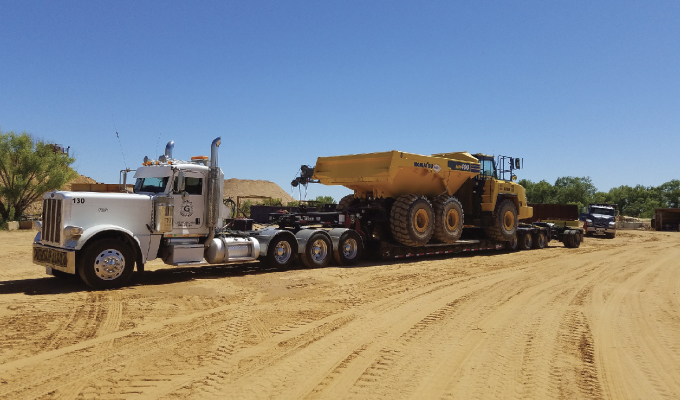Most people engage in standardization without even recognizing it, whether that’s using the same brand of Tupperware for cooking or purchasing the same hand tools from the same manufacturer for all household projects. The same Tupperware means covers can be swapped on similar sized tubs, while a rechargeable battery for a drill might also be used on an impact driver of the same brand, meaning not as many lids or batteries need to be purchased and stored. Standardization makes life easier when sharing between projects is necessary. The same can be said for trailer fleets.
Maintenance requirements and specialized parts are often produced for the specific trailer brand. This means fleet managers are responsible for storing parts split by both the brand of trailer and the size. By working with the same original equipment manufacturers (OEMs) for all trailers, fleet owners improve the efficiency and hauling lifespan of a trailer fleet and minimize storage needs. Here are a few things to keep in mind while making the choice to standardize.
DIVERSITY AND INTERCHANGEABILITY
Fleet owners should look for a well-known manufacturer that offers a diverse product line and a strong dealer-manufacturer relationship. By working with a single, high-quality supplier for the long term, operators maximize the use of each purchase, all while saving time previously spent on “shopping around.”
Standardization also streamlines maintenance by ensuring fleet owners can work with the same reputable dealers for service. Stocking common wear parts—like cylinders, valves or bushings—for a single brand minimizes the investment and storage space required. Common parts that pair with multiple trailers across a product line increase efficiency in the repair and maintenance processes through interchangeability. Familiar design elements also help streamline maintenance since there are less systems technicians need to understand, leading to fewer training requirements.
CUSTOMIZATION
For operations just starting out, customization might seem too costly right off the bat. However, working with the right OEM can offer the chance to optimize equipment for future growth. Not all elements of a custom-designed trailer must be built right away. Instead, leaving room for future customization is a good way to lower costs at the outset and still get the most out of a fleet.
Some manufacturers also offer modular trailer options. The design provides a mix-and-match versatility that allows operators to add custom deck inserts, swap out deck styles, or even provide space for shimming, which ensures optimum weight distribution. Look for an OEM who discusses customization options with the customer throughout the design phase.
HIGH-QUALITY PARTS
Getting the most out of standardization also means making sure the OEM uses high-quality parts for their trailers. Look for a manufacturer who uses heavy-duty T-1, 100,000-psi minimum-yield steel. Some manufacturers also use Apitong flooring, a South Asian wood that’s less likely to chip or crack and provides extra traction on the trailer deck.
Quality parts also benefit safety. Safety ratings show how a trailer can deal with common stressors such as bumps, chuckholes, and railroad tracks. Trailer safety ratings range between no margin to 2.5:1, which is the industry high. Lower-quality materials result in lower safety ratings because they’re more prone to damages and can’t provide long-term dependability. Trailers designed with high-quality parts tend to have an extra margin in the safety rating, which means they’ll experience less stress, wear, and damage.
LONG-TERM PARTNER
Standardization spans across multiple spaces in our lives, whether that’s our kitchens to our workbenches or our trailer fleets. But it all loses its meaning if you aren’t getting a dependable partner. Look for a manufacturer with a knowledgeable and expansive dealer network. Matching a fleet’s unique needs with the right trailers means answering a lot of questions, but it’s the only way to succeed in the long run. Find a manufacturer you wouldn’t mind having on your team for the future.
about the author
Troy Geisler is the vice president of sales and marketing for Talbert Manufacturing, which has been building world-class heavy-haul and specialized trailers to rigorous customer specifications since 1938. For more, visit www.talbertmfg.com.


